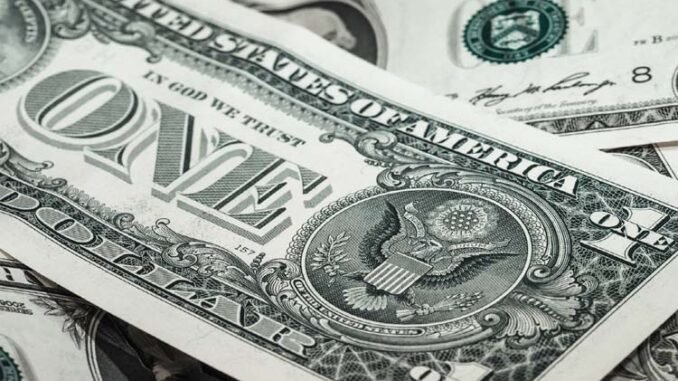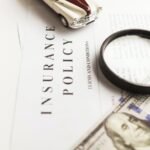
A car accident can be a traumatic experience and can have a significant impact on your personal finances. It’s a situation that can happen to anyone at any time, and it can be challenging to know what to do, especially when it comes to financial implications.
This article aims to provide an in-depth look at how a car accident can affect your personal finances and what steps you can take to mitigate the damage.
Repair Costs
The first financial impact of a car accident is the cost of repairing or replacing your vehicle. Depending on the extent of the damage, you may need to spend thousands of dollars to get your car back on the road.
The cost of repairs will also depend on the type of car you own, the extent of the damage, and the insurance policy you have.
If you have comprehensive insurance coverage, your insurance company may cover the cost of repairs, but you may still have to pay a deductible. If you have liability insurance, you will only be covered if you were found to be at fault in the accident.
Medical Expenses
Another financial impact of a car accident is medical expenses. If you or any of your passengers were injured in the accident, you might have to pay for medical treatment, including hospital stays, doctor visits, and physical therapy.
The cost of medical treatment can quickly add up and may not be covered by your insurance. If you have health insurance, some or all of your medical expenses may be covered, but you may still have to pay a deductible or copayment.
If you don’t have health insurance, you may have to pay for all your medical expenses out of pocket, which can be a significant financial burden.
Lost Income
A car accident can also impact your personal finances by causing you to miss work. If you were injured in the accident and need time off to recover, you may miss several days or even weeks of work.
Depending on your job, you may not be able to work while you recover, which means you may not receive a paycheck during that time.
If you have disability insurance, you may receive a portion of your salary while you’re off work, but you may still have to find a way to make ends meet if your disability payments are not enough to cover your expenses.
Legal Costs
You may be sued if you were involved in a car accident that resulted in an injury or damage to another person’s property.
In this case, you may have to pay legal fees and settlements or judgments against you. Legal costs can quickly add up, and you may have to pay a significant amount of money if you’re found to be at fault in the accident.
If you have liability insurance, your insurance company may cover your legal fees, but you may still be responsible for paying any settlements or judgments.
Increased Insurance Premiums
Finally, a car accident can affect your personal finances by increasing your insurance premiums.
If you were found to be at fault in the accident, your insurance company might raise your premiums to cover the cost of repairs and any settlements or judgments against you.
The increase in your premiums can be substantial and may last for several years, depending on the severity of the accident and the insurance company’s policies.
Steps to Mitigate Against Financial Losses
Fortunately, you can do a few things to mitigate the financial impact of car accidents. Here are some of them:
Purchase Comprehensive Insurance Coverage
The first step in mitigating financial losses from a car accident is to purchase comprehensive insurance coverage.
Comprehensive insurance will cover the cost of repairs to your vehicle and any medical expenses for you and your passengers. It will also provide some protection against legal fees and settlements.
Having enough insurance coverage to protect yourself against potential financial losses from a car accident is important.
Keep Good Driving Records
Another step you can take to mitigate against financial losses from a car accident is to keep good driving records.
A good driving record will help you qualify for lower insurance premiums and reduce the risk of being involved in an accident.
To maintain a good driving record, you should avoid speeding, reckless driving, and drunk driving.
Set Aside an Emergency Fund
Setting aside an emergency fund is another step you can take to protect yourself against the financial impact of a car accident.
An emergency fund is a savings account that you can use to cover unexpected expenses, such as car repairs or medical bills.
It’s important to have enough money saved in your emergency fund to cover at least three to six months of living expenses.
Save for a Rainy Day
In addition to setting aside an emergency fund, you should save for a rainy day. This means putting aside a portion of your monthly income to build a financial cushion.
This cushion can help you pay for unexpected expenses, such as car repairs or medical bills, without relying on credit cards or loans.
Avoid Distracted Driving
Finally, you can mitigate against the financial impact of a car accident by avoiding distracted driving.
Distracted driving is one of the leading causes of car accidents and can result in costly repairs, medical bills, and legal fees.
To avoid distracted driving, you should avoid using your phone, eating, or doing anything else that takes your attention away from the road while driving.
Summary
A car accident can significantly impact your finances, and it’s important to be prepared.
By understanding the financial implications of a car accident, you can take steps to mitigate the damage and protect your finances.
Some of the steps you can take include purchasing comprehensive insurance coverage, having an emergency fund, and maintaining good credit.
If you’re involved in a car accident, it’s also important to seek legal advice to figure out your best course of action.





